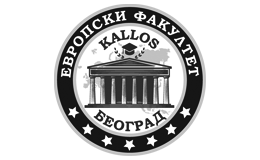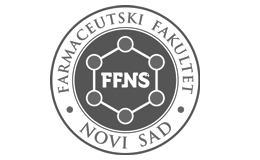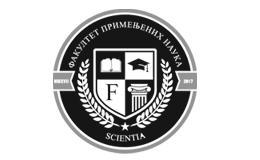Networks
The University is a member of international academic networks such as Compostela Group of Universities and Businet Global Business Education Network.
Compostela Group of Universities
About Network
The Compostela Group of Universities (CGU) is a non-profit international association aimed at fostering cooperation and promoting dialogue in all fields related to higher education. The CGU is a large, prominent, open and inclusive network of universities which currently has more than 70 members worldwide, who work together in the belief that diversity is a keyword in the profile of 21st century universities.
Membership in the Compostela Group of Universities reflects the diversity of higher education systems and is open to all European universities who share the group’s ideals. Associate membership is available to universities outside Europe and to other organizations.
Objectives and activities
The Compostela Group was set up with three basic objectives:
- To strengthen the communication channels among member universities.
- To organize events for the study and discussion on different topics based on the interests of the Group.
- To promote the mobility of its members as a basis for enhancing the knowledge of European cultures and languages.
The activities
The activities of the group include:
- Academic mobility. CGU supports and encourages academic staff and student mobility for its members within the framework of the Socrates programme or by means of other bilateral agreements as well as through the promotion of summer schools.
- Non-academic staff mobility. CGU finances a programme for administrative, technical and support staff mobility among member institutions.
- Cooperation in research and knowledge transfer. CGU seeks to stimulate and support cooperation among its members in research projects and the dissemination of knowledge.
- Working groups. CGU supports and encourages working groups on specific topics and themes, e.g. European Studies, Multilingualism and Multiculturalism, and Women and Gender.
- Workshops and seminars. CGU organizes workshops and seminars on a range of topics related to the working group activities and other specific fields.
- Publications. CGU has three series of publications:
- The Way to Santiago – topics relating to Santiago and the general concept of the pilgrimage
- European Issues – topics of current European interest
- The Compostela Prize - proceedings from seminars related to the work of winners of the Compostela Prize.
- Compostela Prize. In cooperation with the Xunta de Galicia, CGU awards an annual prize to a European individual or group who has made a major contribution to European values in the educational, cultural or social fields.
- Academic Cooperation. Through interaction and dialogue with the EU-Commission and other actors, CGU seeks to contribute to the building of the European Higher Education Area and the fulfillment of the aims of the Bologna declaration.
- Global cooperation. CGU seeks to cooperate with academic organizations in other parts of the world, i.e. both existing networks of universities and individual universities.
- EU Programmes. CGU continuously plays the role of a partner and/or promoter in various EU-projects, such as the newly integrated action programme, Tempus, Erasmus Mundus, and the 7th framework programme.
- Cooperation with Industry and Society. CGU considers it of major importance that higher education institutions cooperate with industry and society and will work to strengthen such relations between members of the group and the community in line with the Lisbon declaration and subsequent documents.
Businet Global Business Education Network
About Network
Businet is a network of international higher education institutes (both private and public universities and colleges) that share a common ethos regarding internationalization.
Businet currently has 104 members in 28 Countries.
Businet provides an environment that encourages the sharing of good practice and encourages cooperation between the like-minded individuals and like-minded organisations.
The work of Businet benefits the member institutes themselves, the staff of those member institutes, as well as the students.
A unique feature of the organisation is that the needs of specific curriculum areas within member institutes are addressed within these groups and are referred to as curriculum working groups and special interest working groups.
Aims and Objectives
The organisation is best defined by its aims and objectives as laid down in the constitution of the Association. The Association will seek to achieve the aims by means of a range of objectives.
The aims of the Association are:
Aims
- To assist members in achieving their organisational aims and objectives associated with transnational activities.
- To promote the development of an international curriculum for all students undertaking studies in the field of business education.
- To provide opportunities for the staff employed in its member institutions to further their professional development.
- To meet the needs of the labour market for employees with the right professional competencies, as well as language and work related skills.
Objectives
These objectives include (but are not limited to) the following:
- To develop, promote, administer, validate and award certified business qualifications.
- To facilitate European and international student exchanges and inter-institutional activities for business students of Business members.
- To promote the acquisition of skills in other European languages for students and staff.
- To assist members in setting up and operating networks of International work and study placements for their students and their staff.
- To identify and disseminate examples of good educational practise.
- To work with international business organisations and cooperate closely with the European Commission and its educational initiatives
The University Network of the European Capitals of Culture
The University Network of the European Capitals of Culture (UNeECC), was founded in Pécs Hungary in December 2006, by 15 founding members. UNeECC is a unique academic network since its member universities are all located in cities which have been, are or will be European Capitals of Culture. As such, UNeECC not only aspires to stimulate regular academic cooperation, i.e. education and research, between its members, but also aims at developing and reshaping the universities’ regional position. UNeECC wants to foster collaboration between cities and universities and is convinced that together ‘town’ and ‘gown’ will contribute to the success of the European Capitals of Culture.
About Network
The creation of UNeECC originates from the idea that it would be useful for Universities and establishments of Higher Education based in European Capitals of Culture to use this well known and prestigious European institution to stimulate new forms of academic institutional collaboration.
Aims and Objectives
The general objectives of UNeECC is to:
- ensure the recognition of the role and contribution of universities to the success of the cities conferred the title “European Capital of Culture”.
- to provide the member universities with a possibility of a continuous and full participation in the European Capitals of Culture movement enhanced by “Universities of the Year”.
- to foster inter-university cooperation to develop and reshape the universities regional position to create new activities for city and university collaboration.
Since its creation in 2006 our network has known a considerable growth and now comprises almost 50 member universities from 20 countries. Moreover, we are proud of the ‘European mix’ UNeECC represents: member universities come form both ‘old’ and ‘new’ EU Member States; among them are institutions with a long-standing tradition as well as recently founded universities. They all share a true vocation in the development of a more outspoken European dimension in their research and education and the engagement to join forces with local authorities to strengthen the impact of the European Capitals of Culture by giving academic support to the preparation and organization of the programmes, initiating additional events aimed at specific audiences and providing a scientific follow-up.
UNeECC does not restrict itself to advocacy of the European cultural cause, but actively participates in it through conferences, lectures series, student activities, research dating and active interdisciplinary networking. ‘Thinking European and acting regional’ is a UNeECC-ly added academic value we can offer since it emanates from our cultural diversity, interchange of ideas, international collaboration, and our thirst for new challenges and opportunities.















